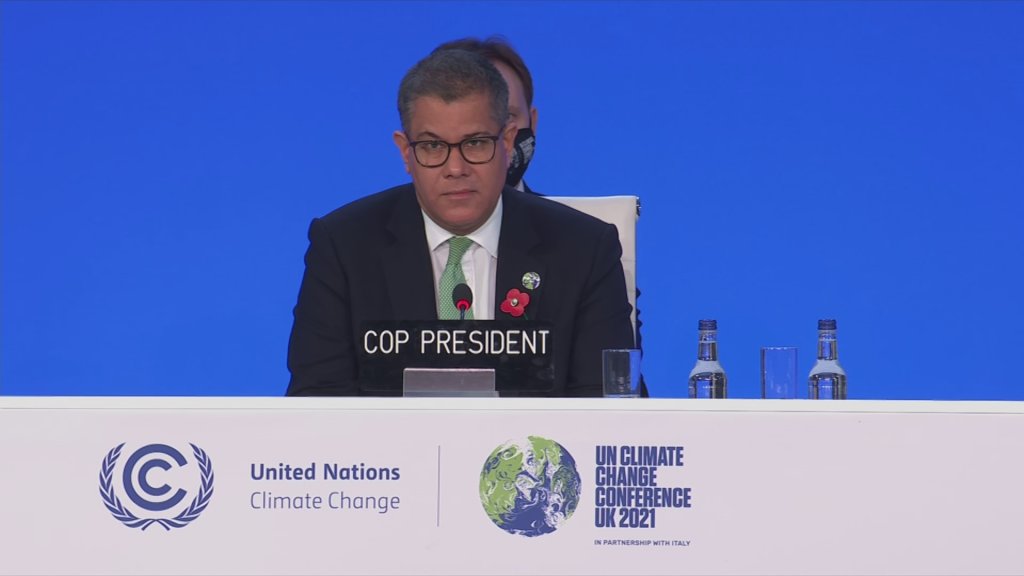Rich world dodges climate finance & climate equity at COP26
For months leading up to the opening of COP26, the 26th meeting of Conference of Parties to the United Nations Framework Convention on Climate Change (UNFCCC), dozens of reputed scientific organisations had said that it was really the last chance to pull the world back from the brink of a total collapse in face of climate change and global warming.
One of the most serious warnings had come from the Intergovernmental Panel on Climate Change, the body mandated by the United Nations to monitor climate change, which said that in many ways it was already too late to achieve the stated objective of the Paris Climate Agreement reached in 2015 of keeping the temperature rise to below 1.5°C from the pre-industrial period. The IPCC had clearly said as per various projections, the world was headed to a rise of anywhere between 2°C and 4°C, both signalling climate catastrophe.
Thus, it was expected that the Glasgow meet, already delayed by a year to the Covid-19 pandemic, would address the thorny issues of finance and common but differentiated responsibilities, which is the foundational principle of almost all multilateral agreements, and assigns different responsibilities on the developed and developing world, due to sharp variance in their historical role as well as current capacity to address the challenges.
This has been part of climate change discussions for well over a decade, yet increasingly, the rich world has been trying to squiggle out of its responsibilities of paying for the greenhouse gas (GHG) emissions over the past two centuries, which lie mainly at their doorstep as even the current largest emitter of carbon, China, has emerged only over the past decade, while for decades before that the United States as well as all other rich nations have been emitting hundreds of times more than any developing nation, at least on a per capita basis, which is the only fair parameter as every human has the same right on the planet’s natural resources.
Not just did the rich nations fail to address their primary responsibility which is perhaps the only thing that could have saved dozens of nations, especially the small island developing states like Maldives, from being buried under climate change impact, they also failed to significantly enhance their own targets for carbon emissions cuts. Instead, they opted for various accounting jargons and juggleries, which will ultimately ensure that the world continues to hurtle down the same path as it has been for the past many years.
Abdication amidst lack of ambition
To what extent the Glasgow meet was ineffectual can be seen from the final statement that says, “The world will strive to meet the Paris Agreement goal of keeping global average temperature to well below 2 degree C above pre-industrial levels and pursue efforts to limit it to 1.5 degree C above pre-industrial levels.”
No wonder, dozens of country delegates as well as environment and human rights groups have slammed the outcome at Glasgow. “COP26 was supposed to be a ‘crisis COP’, a lifeline for the millions of people living in a permanent state of crisis- losing their lives, livelihoods and homes as a result of climate impacts caused by rich polluting countries and corporations. The failure by rich countries like the US, the EU and the UK to support a funding facility for loss and damage is a betrayal to the millions of people suffering from the climate crisis in developing countries,’’ says Climate Action Network, that brings various environment and social groups together under an umbrella.
The activists say that the crucial meeting, held under the shadow of the pandemic, was one of the most exclusionary in UN’s history as numerous civil society groups and even delegates from various poor countries could not turn up due to the vaccine inequities prevailing in the world as well as the eye-watering prices in Glasgow for accommodation or other on-site expenses. As a result, they say that COP26 was mainly led by representatives of fossil fuel multinationals that dominated the meeting and ensured that the phase out of fossil fuels, as an entirety, was not even on the table at the meeting.
“This outcome is an insult to the millions of people whose lives are being torn apart by the climate crisis. There were huge expectations that COP26 would finally deliver real support for the communities, farmers, women and girls who need to recover and rebuild in the aftermath of climate disasters. Countries representing the vast majority of humanity pleaded for a new funding mechanism for loss and damage. But the wealthy countries most responsible for our warming world — particularly the United States — have blocked their ears and hung those most impacted out to dry,’’ says Teresa Anderson, Climate Policy Coordinator, ActionAid International.
Developed world fails its responsibility, again
The NGOs did not pull their punches in putting the blame where it belonged. “Wealthy countries have failed to commit money towards compensating communities suffering loss and damage as a result of climate change. It is bitterly disappointing to see the many loopholes in the COP26 agreement which bow to the interests of fossil fuel corporates rather than our rights,’’ says Agnès Callamard, Secretary General of human rights organisation Amnesty International.
Leading global body of scientists, Union of Concerned Scientists, highlights that the Glasgow meeting failed to achieve any of its objectives and has put the planet on the path to catastrophe. “Current emission reduction pledges collectively still fall short of delivering on the Paris Agreement goals, putting the world on track for a temperature increase of 2.4°C that will lead to significant, even irreversible, climate impacts. The Glasgow agreement’s unbalanced outcome also doesn’t prioritise climate finance for developing countries. A proposed Glasgow Loss and Damage Facility to channel new and additional funds for loss and damage failed to materialise after being blocked by richer nations including the United States, Australia and the European Union. The final COP26 decision is overwhelmingly compromised by countries that have contributed most greatly to the climate crisis and once again denies justice for climate vulnerable developing countries,” says Rachel Cleetus, Policy Director and Lead Economist in the Climate and Energy Programme at the Union of Concerned Scientists.
At the end, the Glasgow meeting will be remembered more for its sloppy compromises and lack of ambition and total absence of commitment by those who matter. The extension of the negotiations from Friday to Saturday, instead of leading to a breakthrough to produce an outcome that could have pulled the world back from the precipice, produced an agreement that actually compromises the fate of the world and tries to cover up its failure with jargons and wordplay.
“This summit has been a triumph of diplomacy over real substance. The outcome here reflects a COP held in the rich world and the outcome contains the priorities of the rich world. Not only did developed countries fail to deliver the long promised USD 100 billion of climate finance to poorer countries, but they have also failed to recognise the urgency of delivering this financial support. They claim to want urgency on emissions reductions, yet they continue to expand fossil fuel production within their own borders,” says Mohamed Adow, Director at Power Shift Africa.
The delegation from the tiny Indian Ocean archipelago Maldives succinctly highlighted what the accord reached at Glasgow really represented. “It is (an) incremental step forward but not in line with the progress needed. It will be too late for the Maldives. This deal does not bring hope to our hearts,” said Maldives’ top negotiator, environment minister Aminath Shauna.











